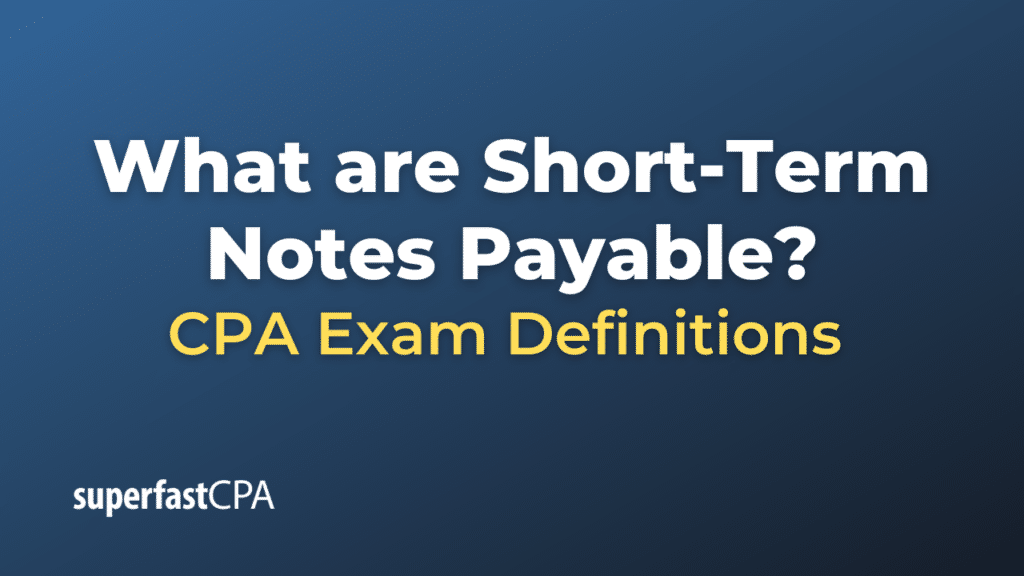Short-Term Notes Payable
Short-term notes payable (often simply referred to as “notes payable” when the context is clear) are promissory notes that represent amounts a company or individual has borrowed and must repay within one year or within the company’s operating cycle, whichever is longer. They are a type of short-term liability.
Here are some specifics about short-term notes payable:
- Formal Agreement: Unlike accounts payable, which arise from regular business operations and do not usually have a formal agreement, notes payable are formal written agreements in which the borrower promises to pay a certain amount to the lender by a specific date.
- Interest: Short-term notes payable often carry an interest component. The note will specify the interest rate, and the borrower is obligated to pay back both the principal amount of the loan and the accrued interest by the due date.
- Reasons for Issuance: Companies might issue a short-term note payable for various reasons, such as needing immediate cash for operations, refinancing an existing short-term obligation, purchasing equipment, or taking advantage of a business opportunity.
- Maturity: As these are short-term obligations, they mature within one year (or one operating cycle). If a note has a longer maturity, it would be categorized as a long-term liability on the balance sheet.
- Classification: On the balance sheet, short-term notes payable are typically listed separately from accounts payable, often under the broader category of current liabilities.
Example of Short-Term Notes Payable
Let’s dive deeper with a hypothetical scenario to illustrate short-term notes payable:
Scenario: Bella’s Bakery
Bella’s Bakery is a small business that specializes in cakes, pastries, and cookies. In April 2023, Bella sees an opportunity to expand her operations by setting up a stall at the local summer fair, which attracts a large crowd. However, she realizes she’ll need an additional oven and some other equipment, which she can’t afford with her current cash flow.
She approaches a local bank to secure financing and is given a $10,000 90-day note payable with an interest rate of 4% annually.
Recording the Note Payable:
When Bella’s Bakery accepts the note payable:
Debit Cash $10,000 (Bella’s Bakery receives this amount from the bank)
Credit Notes Payable $10,000 (This is the bakery’s liability, representing the amount to be repaid)
Over the 90 days, the interest on the note will accrue. The interest for the 90 days can be calculated as:
Interest = Principal x Rate x Time
Interest = $10,000 x 0.04 x (90/365) = $98.63
By the end of the 90 days, Bella’s Bakery would owe:
Principal: $10,000
Interest: $98.63
Total due: $10,098.63
Repaying the Note Payable:
When Bella’s Bakery repays the bank at the end of 90 days:
Debit Notes Payable $10,000 (To settle the principal amount)
Debit Interest Expense $98.63 (Recognizing the cost of borrowing)
Credit Cash $10,098.63 (Cash paid to the bank)
In this example, Bella’s Bakery used a short-term note payable to finance the purchase of equipment for a specific opportunity. The cost of this borrowing was $98.63, which is the interest expense she had to pay in addition to repaying the principal amount of the loan.













